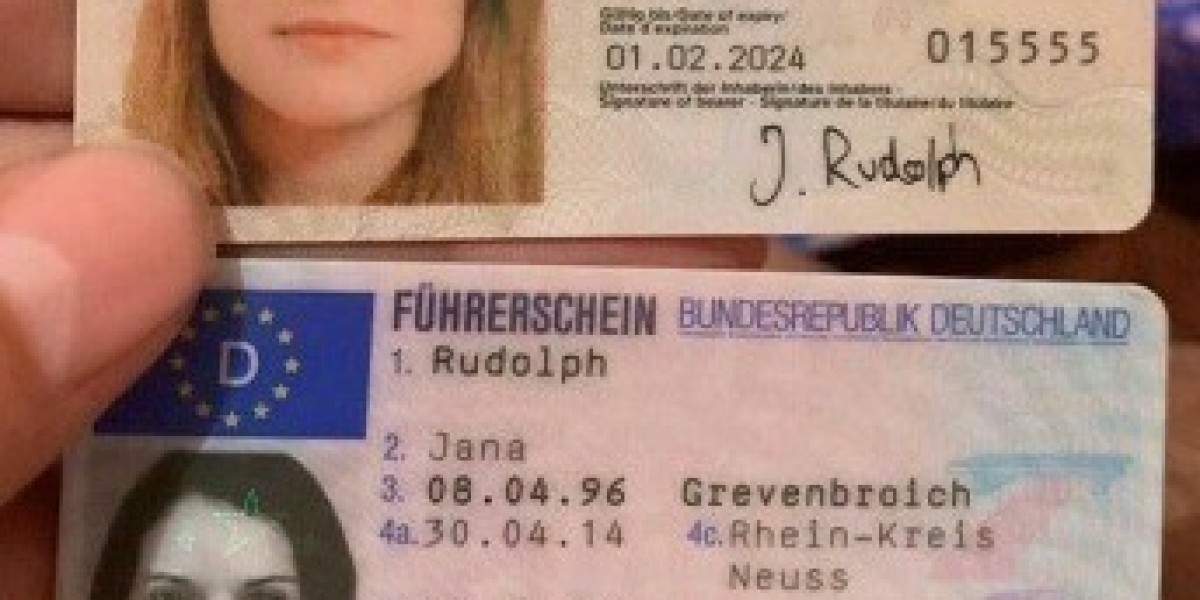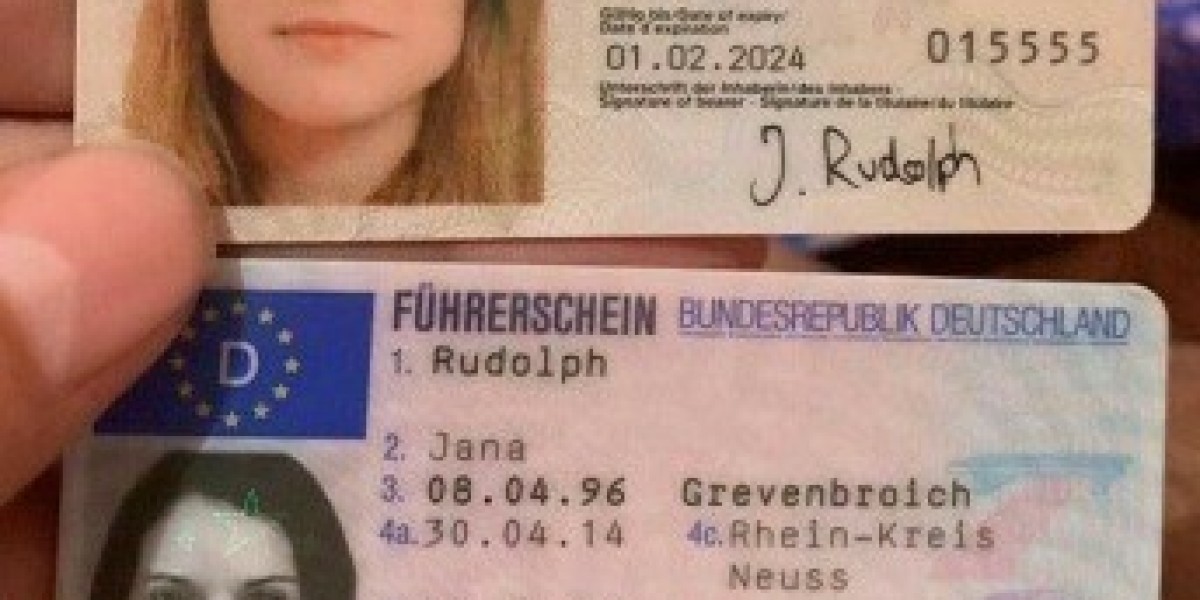Navigating the Autobahn and Beyond: Understanding the German Driving License Experience
The appeal of Germany typically extends beyond its abundant history, dynamic culture, and stunning landscapes. For numerous, the possibility of driving on the renowned Autobahn, a network renowned for its sections without obligatory speed limits, is a substantial draw. Nevertheless, before one can experience the excitement behind the wheel in Germany, obtaining a German driving license is a needed and, typically perceived, challenging undertaking. This post digs into the experiences associated with obtaining a German driving license, providing a helpful guide to the procedure, potential difficulties, and valuable insights for anyone considering starting this journey.
A German driving license is more than just a notepad permitting füHrerschein kaufen legal operation of a vehicle; it's a testament to a driver's skills and adherence to rigid German road security requirements. The process is created to be extensive, making sure drivers are not just well-informed about traffic laws however also possess the useful skills and responsible mindset needed to browse German roadways safely. While the track record of the German driving test as extensive is well-earned, understanding the procedure and being prepared can make the experience less challenging and ultimately effective.
The Road to a German Driving License: A Step-by-Step Journey
Acquiring a German driving license is a structured procedure, normally involving a number of crucial stages. While specific experiences can differ based upon private scenarios and driving schools, the general course stays consistent.
Here's a breakdown of the standard actions:
Enrolling in a Driving School (Fahrschule): This is the very first and crucial action. Selecting the best driving school is necessary as they will direct you through the whole process. Driving schools in Germany are managed and use structured training programs sticking to national standards. Registration typically includes registration and getting initial info about the course structure, costs, and required documents.
Eye Test (Sehtest): Before commencing official training, an eye test is compulsory to guarantee you satisfy the minimum vision requirements for driving. This test can be done at an optician or an ophthalmologist. A certificate of your effective eye test is a required document for your application.
Emergency Treatment Course (Erste-Hilfe-Kurs): Demonstrating knowledge of emergency treatment is a prerequisite for obtaining a German driving license. You will need to finish a recognized first aid course, normally lasting a day. These courses are widely offered and cover essential emergency treatment treatments pertinent to road mishaps and general emergency situations.
Theory Lessons (Theorieunterricht): German driving theory is comprehensive and comprehensive. Driving schools supply necessary theory lessons, covering everything from traffic laws and guidelines, road signs, and right of way rules to vehicle innovation, environmental considerations, and defensive driving methods. These lessons are often interactive and created to prepare students for the theoretical examination.
Theory Exam (Theorieprüfung): Once the theory lessons are completed, you can use to take the official theory exam. This computer-based exam tests your knowledge of German driving laws and guidelines. It involves multiple-choice concerns and video-based circumstances. Passing the theory exam is a prerequisite for commencing practical driving lessons. Many prospective drivers discover the theory exam challenging due to the large volume of information and the requirement to understand nuanced German traffic guidelines. Language can also be a considerable barrier for non-native speakers.

Practical Driving Lessons (Fahrstunden): After passing the theory exam, the practical driving lessons begin. The number of lessons required differs considerably depending on specific aptitude, prior driving experience (if any), and the driving trainer's evaluation of progress. German driving trainers are highly trained and focus not only on standard car control however also on safe, accountable, and anticipatory driving. Lessons cover a wide variety of driving circumstances, including city driving, Autobahn driving, rural roadways, night driving (typically obligatory), and emergency situation maneuvers. These lessons are carried out in driving school vehicles equipped with dual controls.
Practical Exam (Praktische Prüfung): The useful driving exam is the final obstacle. It is carried out by a main inspector from the TÜV (Technischer Überwachungsverein) or DEKRA (Deutscher Kraftfahrzeug-Überwachungs-Verein), independent testing companies. The exam typically lasts around 45-60 minutes and evaluates a driver's capability to securely and properly operate a vehicle in real-world traffic conditions. Examiners meticulously evaluate driving abilities, adherence to traffic rules, observation skills, and total driving behavior. The German practical exam is understood for its thoroughness and can be perceived as demanding. It is not unusual for candidates to need several efforts to pass.
Navigating the Bumps in the Road: Common Experiences and Challenges
While the process is structured, people often encounter specific obstacles and have distinct experiences throughout their journey to acquire a German driving license.
Language Barrier: For non-German speakers, the language barrier can be a significant difficulty, especially for the theory exam. While some driving schools offer lessons and materials in English or other languages, the main theory exam and practical exam are typically performed in German. Comprehending intricate German traffic guidelines and terminology can be demanding, requiring additional effort and language assistance.
Strictness of the System: The German driving license system is understood for its rigor and high requirements. Both the theory and practical exams are developed to be tough, showing the focus on road safety in Germany. This strictness can be initially intimidating for some, particularly if they are used to less strict licensing processes in their home nations.
Expense: Obtaining a German driving license can be costly. Expenses include driving school registration charges, theory and practical lesson fees (which are often charged per lesson), eye test, emergency treatment course, theory and practical exam charges, and application costs. The overall cost can vary based on the number of useful lessons required, which in turn depends upon private learning speed and prior experience.
Thoroughness of Practical Exam: The practical exam is carefully detailed, and examiners are trained to observe a wide variety of driving habits. Even minor mistakes can lead to failure if they are considered to compromise safety or indicate an absence of proficiency. This thoroughness can produce pressure and stress and anxiety for candidates.
Discovering a Suitable Driving School and Instructor: The relationship with the driving trainer is important for success. Discovering a driving school and trainer that fit specific knowing styles and needs is important. Elements like instructor's mentor design, communication skills, and schedule can considerably affect the learning experience.
Waiting Times: Depending on the region and driving school, waiting times for theory and useful tests can sometimes be longer than wanted. This can add to the overall duration of the process.
Tips for a Smoother Ride: Strategies for Success
While obstacles exist, successful acquisition of a German driving license is attainable with preparation and the ideal method.
Here are some ideas to boost the experience and increase the opportunities of success:
Start Early and Plan Ahead: Begin the process well in advance of when you really require the license. This enables adequate time for learning, practicing, and handling possible hold-ups.
Select a Reputable Driving School: Research and select a well-regarded driving school with experienced trainers and a great track record. Seek recommendations and read reviews from other trainees.
Diligent Theory Preparation: Devote enough time to studying the theory product. Make use of discovering apps, practice tests, and other resources to strengthen your understanding of German traffic laws. For non-native speakers, consider language assistance resources particularly developed for driving theory.
Be Proactive in Practical Lessons: Actively participate in useful lessons. Ask questions, seek feedback, and practice recognized locations of weak point. Don't be reluctant to demand additional lessons if you feel you need more practice.
Address Language Barriers Head-On: If language is an issue, consider driving schools that offer support for non-native speakers, explore translation tools for theory products, and possibly seek language tutoring concentrated on driving-related vocabulary.
Practice, Practice, Practice: Supplement driving school lessons with extra practice if possible, even if it's just practicing maneuvers in a safe, regulated environment (with appropriate guidance and permissions if not a private location). The more comfy and confident you lag the wheel, the much better you will carry out in the exam.
Mock Exams and Practice Tests: Utilize mock theory and useful examinations to familiarize yourself with the exam format, determine areas for enhancement, and minimize exam stress and anxiety.
Do not Be Discouraged by Failure: It is not uncommon to fail the useful exam on the very first attempt in Germany. Do not let this prevent you. Examine the examiner's feedback, resolve the determined weak points, and attempt once again. Persistence is essential.
Foreign License Conversion: An Alternative Route
For some individuals holding driving licenses from other countries, there might be the possibility of transforming their existing license to a German one without going through the complete German driving license treatment. This depends on reciprocal agreements in between Germany and the providing country. Nevertheless, even with reciprocal arrangements, a useful test or extra training may still be required. It's important to check the specific regulations based upon your native land and the class of license you hold. If conversion is not possible, or if the foreign license is not recognized, acquiring a full German driving license through the standard procedure is required.
Conclusion: The Value of a German Driving License
Obtaining a German driving license is certainly an extensive and sometimes challenging process. Nevertheless, the rigor of the system guarantees that license holders are competent and safe drivers, adding to Germany's credibility for road safety. The experiences encountered during the process, from mastering intricate traffic laws to browsing demanding useful tests, ultimately gear up drivers with the abilities and understanding necessary to with confidence and responsibly navigate German roads and beyond. While it may require effort, dedication, and potentially a few efforts, the reward of holding a German driving license, with its trustworthiness and recognition, is well worth the journey. It opens doors to checking out Germany and Europe on 4 wheels, using freedom and independence in a region known for its exceptional road facilities and driving culture.
Regularly Asked Questions (FAQs) about Getting a German Driving License
Q: How long does it take to get a German driving license?
A: The period differs considerably depending on specific finding out speed, prior experience, and the accessibility of driving school consultations and exam slots. It can range from a couple of months to over a year. Aspects like language efficiency and the number of useful lessons needed likewise contribute.
Q: How much does it cost to get a German driving license?
A: Costs differ substantially. Budget plan anywhere from EUR2,000 to EUR3,500 or perhaps more. Expenses depend on the driving school, the variety of practical lessons needed, exam charges, and other associated expenditures. It's advisable to get expense estimates from several driving schools.
Q: Can I take the theory and practical tests in English?
A: Generally, the official theory and practical examinations are performed in German. While some driving schools might provide theory lessons and materials in English, the official tests are typically in German. It's essential to confirm with the driving school and authorities about language options.
Q: How lots of theory and useful lessons are obligatory?
A: There is no legally mandated minimum variety of practical driving lessons. However, obligatory theory lessons should be completed. The variety of useful lessons required depends upon specific ability and the driving trainer's assessment of development. A particular variety of unique driving lessons (e.g., Autobahn, night driving) are frequently mandatory.
Q: What occurs if I fail the theory or practical exam?
A: If you fail either the theory or practical exam, you can retake it. There is usually a waiting duration before you can attempt the exam again. There are likewise restricts to the number of times you can fail before needing to re-enroll in driving school or facing further constraints.
Q: Can I utilize my foreign driving license in Germany?
A: Whether you can utilize your foreign driving license in Germany and for the length of time depends upon your native land and the kind of license. Licenses from EU and EEA nations are normally acknowledged. For licenses from non-EU/EEA countries, there may be a minimal validity duration or the need for conversion or a German driving license. It's vital to examine the particular regulations based upon your individual situations.
Q: Do I require to own a car to get a German driving license?
A: No, you do not require to own a car. Driving lessons and practical examinations are conducted in driving school automobiles.
Q: Is it possible to move my foreign driving license to a German one?
A: Yes, in many cases, it is possible to transfer a foreign driving license to a German one, depending on reciprocal arrangements between Germany and the issuing country. The process and requirements vary. Contact the local driving license authority (Führerscheinstelle) for particular information.
Q: What types of cars can I drive with a German Class B driving license (standard car license)?
A: A Class B driving license enables you to drive automobile (up to 3.5 loads of maximum authorized mass) with approximately 8 guest seats plus the driver's seat. It also includes trailers as much as a certain weight. For bigger lorries or other categories, extra driving license classes are required.







